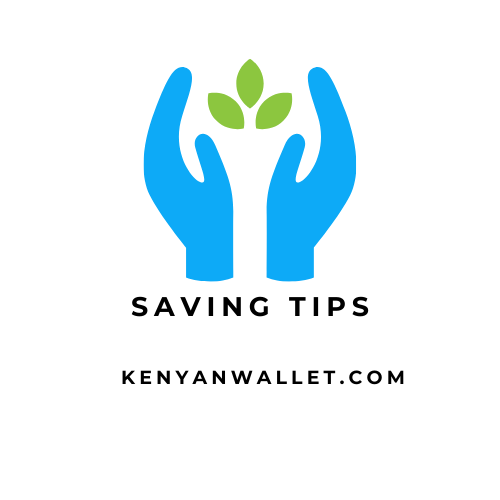How to Open a Brokerage Account in Kenya: A Step-by-Step Guide
Opening a brokerage account is the first step to investing in stocks, bonds, mutual funds, and other financial instruments. This guide will walk you through what a brokerage account is, how it works, and how to open one in Kenya.
What is a Brokerage Account?
A brokerage account is an investment account that allows you to purchase investments such as stocks, bonds, and mutual funds. Similar to a bank account, you can deposit money into a brokerage account. However, unlike retirement accounts, brokerage accounts do not have contribution limits or early withdrawal penalties, offering greater flexibility. The main difference is that brokerage accounts lack the tax benefits of retirement accounts.
How Does a Brokerage Account in Kenya Work?
Opening a brokerage account is a straightforward process that can be done online. Many brokerage firms in Kenya allow you to open an account with no initial deposit, but you must fund the account before purchasing any investments. You can transfer money from your bank account or another brokerage account.
The money and investments in your brokerage account belong to you, and you can sell them at any time. The brokerage firm acts as a middleman between you and the investments you wish to buy. There is no limit on the number of brokerage accounts you can have or the amount of money you can invest each year. Generally, there are no fees to open a brokerage account.
Choosing a Brokerage Account Provider
When selecting a brokerage account provider in Kenya, you have two main options: online brokers and managed brokerage accounts.
Online Brokerage Account in Kenya
If you prefer to manage your investments personally, an online brokerage account is suitable. These accounts allow you to buy and sell investments through the broker’s website. Discount brokers offer a range of investment options, including stocks, mutual funds, and bonds.
Managed Brokerage Account in Kenya
A managed brokerage account comes with investment management services provided by a human investment advisor or a robo-advisor. Robo-advisors use algorithms to manage your investments based on your goals and timeline, offering a low-cost alternative to human advisors. This option is ideal if you prefer a hands-off approach to investing.
Steps to Open a Brokerage Account in Kenya
1. Research and Choose a Broker
Before opening a brokerage account, research various brokerage firms in Kenya. Consider factors such as fees, investment options, account features, and customer service. Popular brokers in Kenya include NCBA Investment Bank, Genghis Capital, and Faida Investment Bank.
2. Gather Required Documents
To open a brokerage account in Kenya, you will need to provide the following documents:
- A copy of your national ID or passport
- Proof of address (utility bill or bank statement)
- Recent passport-sized photographs
- KRA PIN (Kenya Revenue Authority Personal Identification Number)
3. Complete the Application Form
Most brokerage firms offer online application forms. Complete the form with your personal information, including your name, contact details, and financial information. Some brokers may require additional information, such as your employment details and investment experience.
4. Fund Your Account
After your account is approved, you need to deposit funds into it. You can transfer money from your bank account to your brokerage account. Some brokers may require you to verify the transaction by confirming a small deposit made to your bank account.
5. Start Investing
Once your account is funded, you can start purchasing investments. Use the broker’s platform to buy stocks, bonds, mutual funds, or other available investment options. You can manage your investments through the broker’s website or app.
Learn how to start a business in Kenya
Tax Considerations for Brokerage Account in Kenya
Investing through a brokerage account means you will be subject to taxes on your investment income. Profits from selling investments are subject to capital gains tax, and any dividends received are also taxable. Here are some tax tips to keep in mind:
- Capital Gains Tax: If you sell an investment for a profit, you will need to pay capital gains tax. The rate may vary depending on the holding period of the investment.
- Short-Term vs. Long-Term Gains: Selling an investment within a year typically incurs a higher tax rate compared to holding it for longer than a year.
- Offsetting Losses: If you incur a loss from an investment, you can use that loss to offset gains from other investments, reducing your overall tax burden.
- Dividend Tax: Dividends are subject to tax even if reinvested. Your brokerage will provide a tax form summarizing your dividend income for the year.
Other Investment Accounts Apart from Brokerage Account in Kenya
In addition to brokerage accounts, consider other investment accounts such as retirement accounts. A Roth IRA, for example, allows for tax-free withdrawals after meeting certain conditions. If you are saving for retirement, a retirement account might offer better tax advantages.
Conclusion
Opening a brokerage account in Kenya is a straightforward process that can open the door to various investment opportunities. By carefully selecting a broker, gathering the necessary documents, and understanding the tax implications, you can start building your investment portfolio. Whether you choose to actively manage your investments or prefer a managed approach, a brokerage account provides the flexibility to grow your wealth over time.




